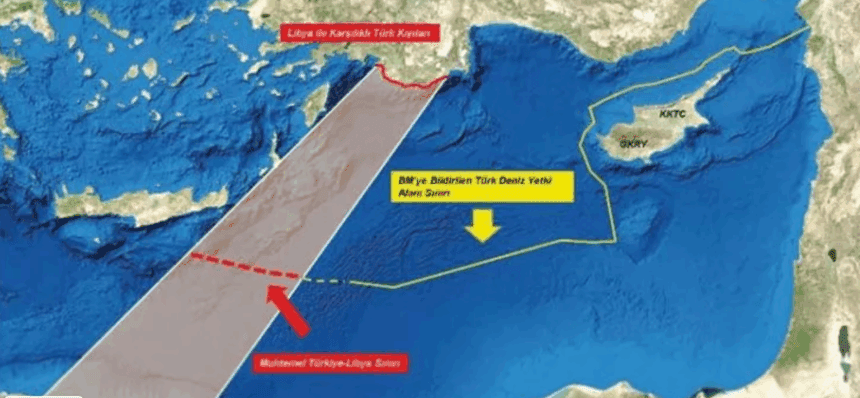Athens is sounding the alarm after reports emerged that Libyan warlord General Khalifa Haftar is moving to potentially ratify a contentious maritime agreement with Turkey. The deal, signed in 2019 between Ankara and the then-provisional government in Tripoli, seeks to delimit an Exclusive Economic Zone (EEZ) across the Eastern Mediterranean, cutting across the maritime interests of Greece and Egypt.
The development, first reported by Libya’s state news agency LANA, said that the eastern-based Libyan House of Representatives—aligned with Haftar—decided on June 2 to establish a technical committee to review and potentially approve the Turkey-Libya agreement. Haftar, who controls much of eastern Libya and its legislature, is not internationally recognized but wields significant influence in the country’s political landscape.
Until now, the lack of endorsement by Libya’s Parliament had served as the primary legal argument used by Greece to challenge the validity of the 2019 memorandum. While the Tripoli government had signed the deal, its rejection by the eastern legislature rendered it legally and politically contested within Libya. Any reversal of that stance would significantly alter the diplomatic and legal terrain.
Greek officials have labeled the agreement as null and void, arguing that Libya and Turkey, located on opposite shores of the Mediterranean, have no adjacent maritime boundaries that would justify such a deal under international law. Athens considers the move a direct threat to regional stability and a flagrant violation of Greek and Egyptian sovereign rights.
The latest news has sparked a diplomatic scramble in Athens, with Greek officials reportedly reaching out to Egypt to coordinate a joint response aimed at dissuading Haftar from endorsing the deal. A ratification would deal a major blow to Greek foreign policy, which has long relied on the split between Libya’s rival administrations to prevent the agreement’s implementation.



